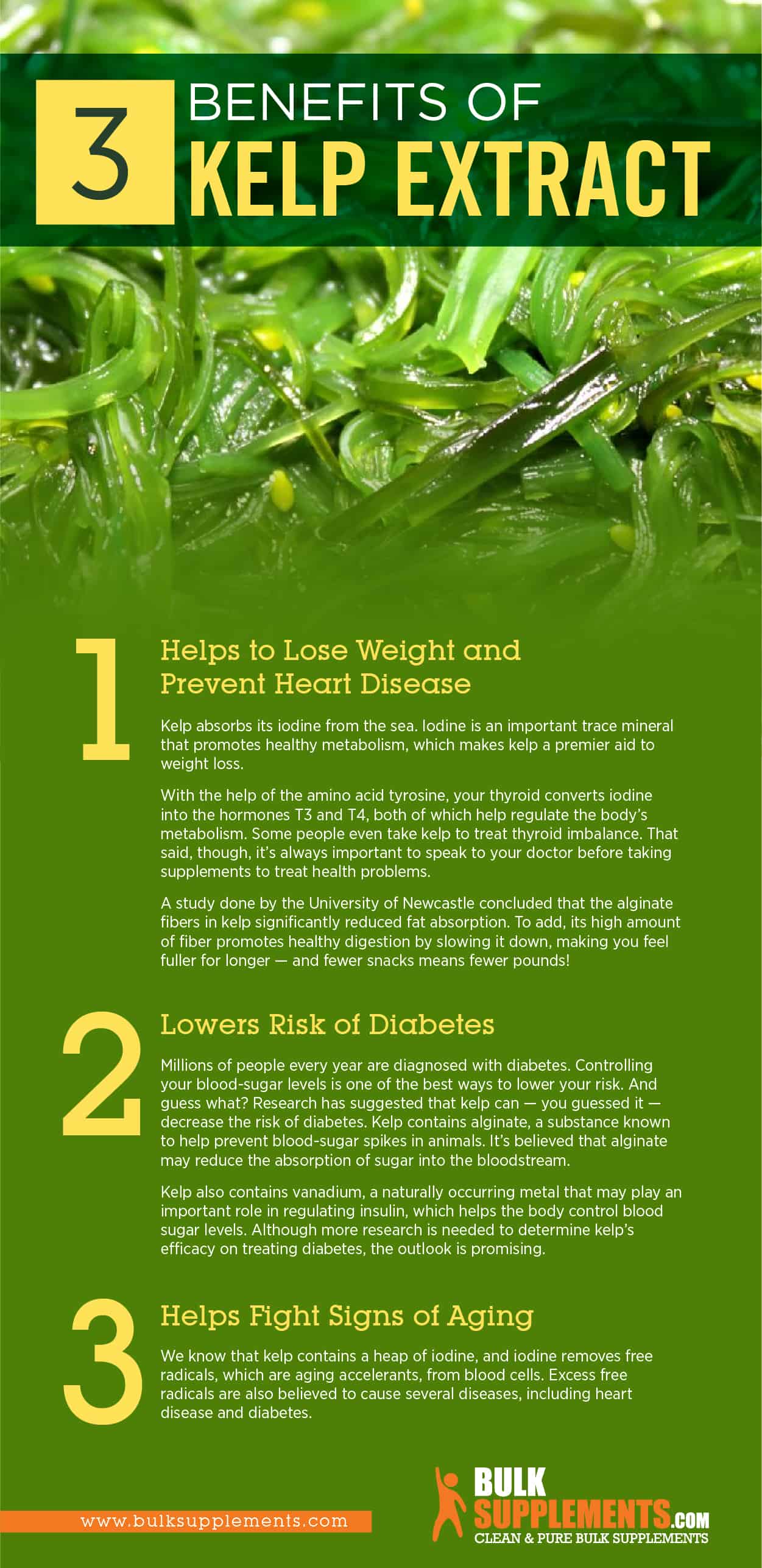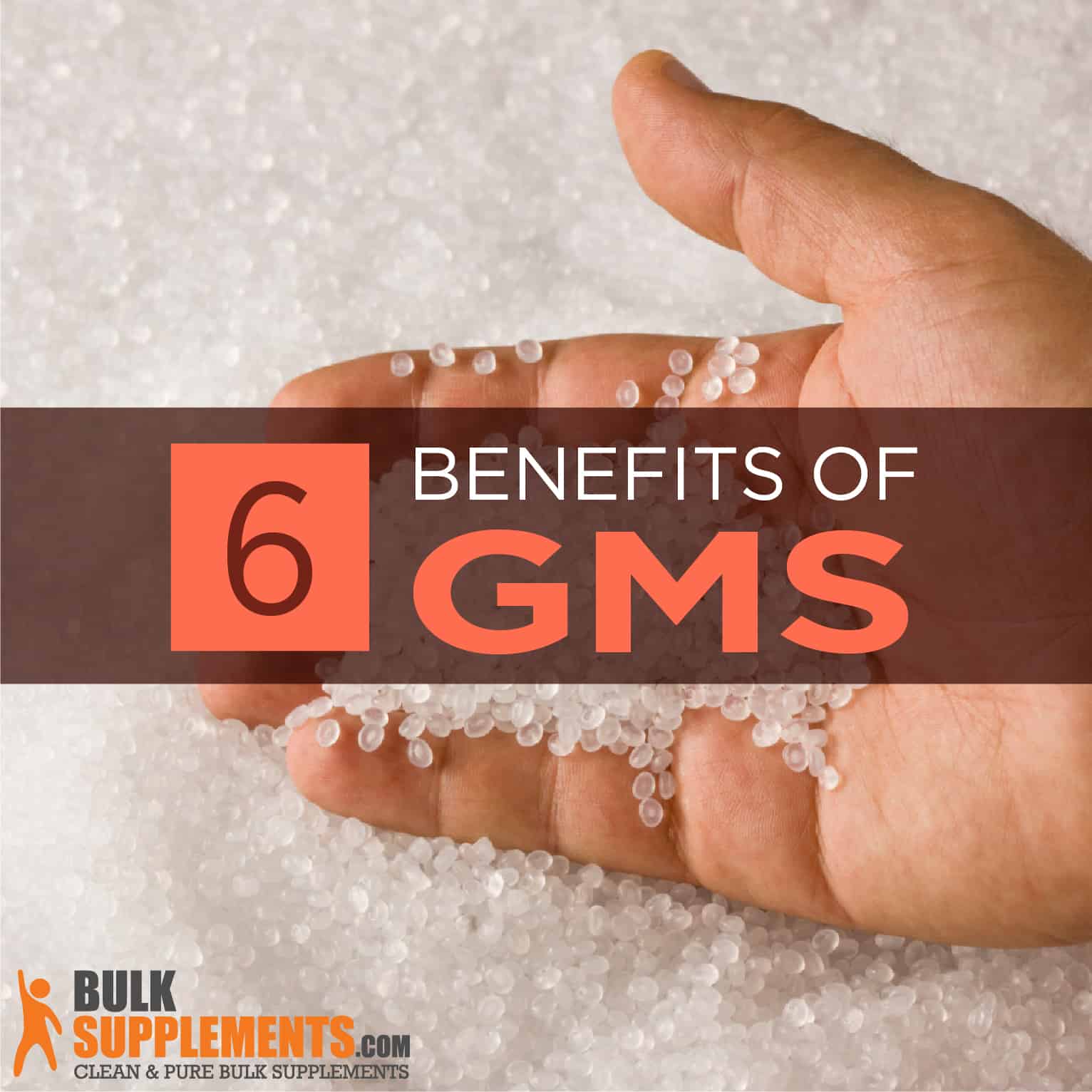Kelp: Benefits, Side Effects & Dosage
by James Denlinger Digital Marketing StrategistWhat is Kelp Extract?
In recent years, the health benefits of kelp have generated a ton of interest, which has driven the popularity of kelp-based products through the roof. But the recent kelp boom in the health food industry has had some speculating on what it actually does to our health and what the risks of taking it are.
But if there are risks, they’ve seldom deterred anyone — people have been using kelp for hundreds of years, adding it to drinks or cooking it in food. So what makes it so popular? After all, it’s only seaweed, right?
Yes and no. Yes, it’s a seaweed, but one that grows in shallow, nutrient-rich water, which makes it a natural source of vitamins A, B1, B2, C, D and E. Kelp is also a rich source of minerals such as zinc, copper, iron, magnesium, potassium and calcium, of which it contains ten times more than milk, making kelp a great calcium supplement. But a huge part of what makes kelp so popular is its natural abundance of iodine.
Kelp Extract Benefits
Helps to Lose Weight and Prevent Heart Disease
Kelp absorbs its iodine from the sea. Iodine is an important trace mineral that promotes healthy metabolism, which makes kelp a premier aid to weight loss.
With the help of the amino acid tyrosine, your thyroid converts iodine into the hormones T3 and T4, both of which help regulate the body’s metabolism. Some people even take kelp to treat thyroid imbalance. That said, though, it’s always important to speak to your doctor before taking supplements to treat health problems.
A study done by the University of Newcastle concluded that the alginate fibers in kelp significantly reduced fat absorption. To add, its high amount of fiber promotes healthy digestion by slowing it down, making you feel fuller for longer — and fewer snacks means fewer pounds!
Obesity and high cholesterol cause heart disease, one of the biggest killers in the modern world. Now, you can fight obesity and high cholesterol simply by throwing some kelp in your cooking pot.
Lowers Risk of Diabetes
Millions of people every year are diagnosed with diabetes. Controlling your blood-sugar levels is one of the best ways to lower your risk. And guess what? Research has suggested that kelp can — you guessed it — decrease the risk of diabetes. Kelp contains alginate, a substance known to help prevent blood-sugar spikes in animals. It’s believed that alginate may reduce the absorption of sugar into the bloodstream.
Kelp also contains vanadium, a naturally occurring metal that may play an important role in regulating insulin, which helps the body control blood sugar levels. Although more research is needed to determine kelp’s efficacy on treating diabetes, the outlook is promising.
Helps Fight Signs of Aging
We know that kelp contains a heap of iodine, and iodine removes free radicals, which are aging accelerants, from blood cells. Excess free radicals are also believed to cause several diseases, including heart disease and diabetes.
 PIN IT
PIN ITKelp Extract Side Effects
Because kelp has a high mineral content, high doses may pose a health risk for those with certain pre-existing health problems. Iodine, for example, already exists in abundance in our food, and although it’s important to our diet, too much of it may cause hyperthyroidism, Graves’ disease and even thyroid cancers.
Luckily, foods such as cabbage, bok choy and broccoli can prevent excess iodine absorption.
Kelp has a naturally high content of metals, especially if it grows in water polluted by toxic metals, which can cause major health problems if ingested. Due to this risk, children and pregnant women shouldn’t take kelp supplements. They’re also not recommended for breastfeeding women or those with pre-existing health problems such as kidney or liver disease. Kelp grown in clean water significantly lowers the risk of ingesting toxic metals.
Kelp Extract Dosage
As a dietary supplement, take 600 mg (just over a 1/4 tsp) daily with food or as directed by a doctor. Always consult your doctor before taking any supplement.
Adding Kelp to Your Diet
There are a number of different kelp supplements on the market. You can also buy kelp at some grocery stores and Asian food markets. It’s not the most appetizing food there is, so you may want to add it to meal recipes to disguise its taste!
Today, you can find a wide variety of recipes using kelp, which is fast becoming one of the most popular health foods among the health-conscious. But if you don’t want to cook with it, you can take kelp supplements, which are available in powders and extracts.
The Bottom Line
Kelp is not only becoming a popular ingredient in dietary cooking, but also a popular supplement. Some view it as a superfood due to its high concentration of vitamins and minerals — especially iodine, which we know is a super heavyweight champ in our fight against weight loss. Though kelp is a great source of vitamins and minerals, it can pose health risks for certain people, so only take it in moderation.
So, is kelp the seaweed superfood? We certainly think so!
Sponsor Ads
Created on Apr 12th 2020 16:56. Viewed 571 times.




